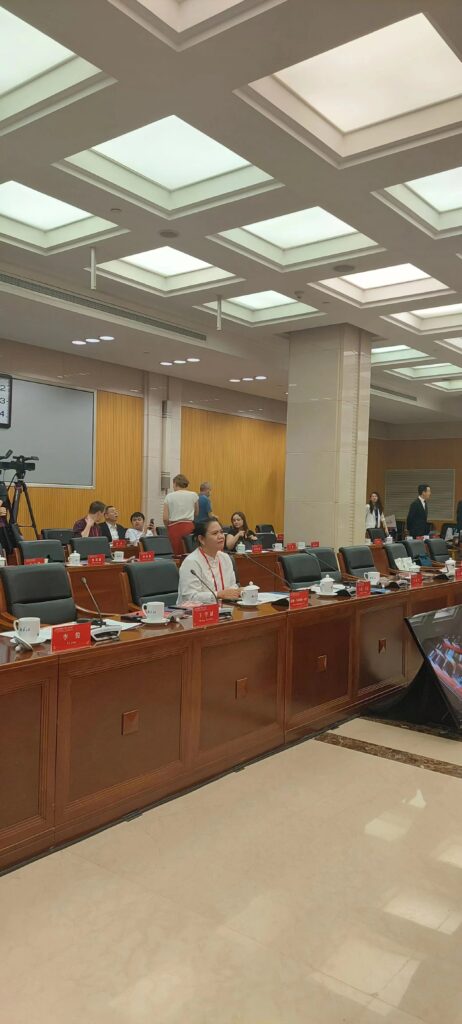Think Tank Report Release and Seminar
New China Research (NCR), Xinhua News Agency
Speech: Prof. Anna Malindog-Uy
July 2, 2023
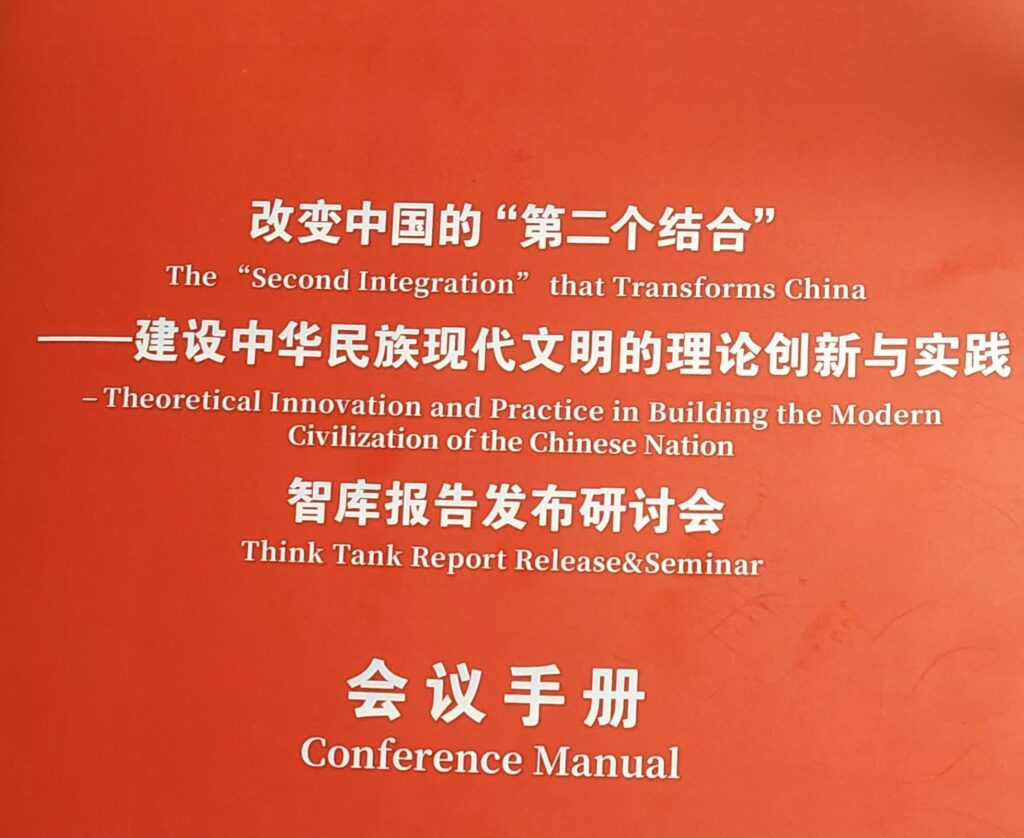
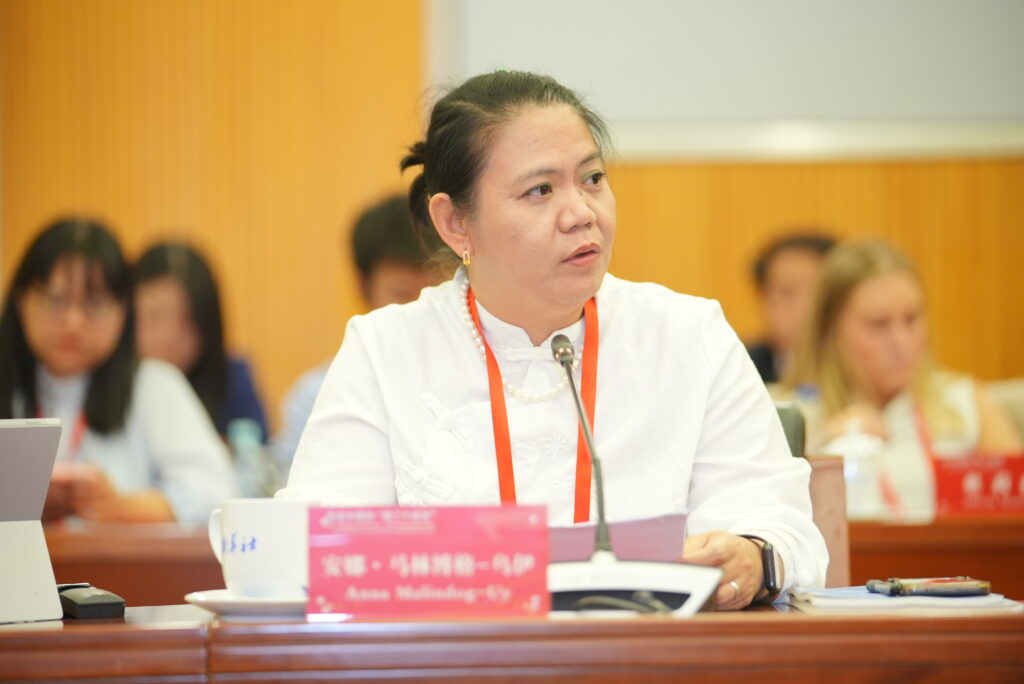
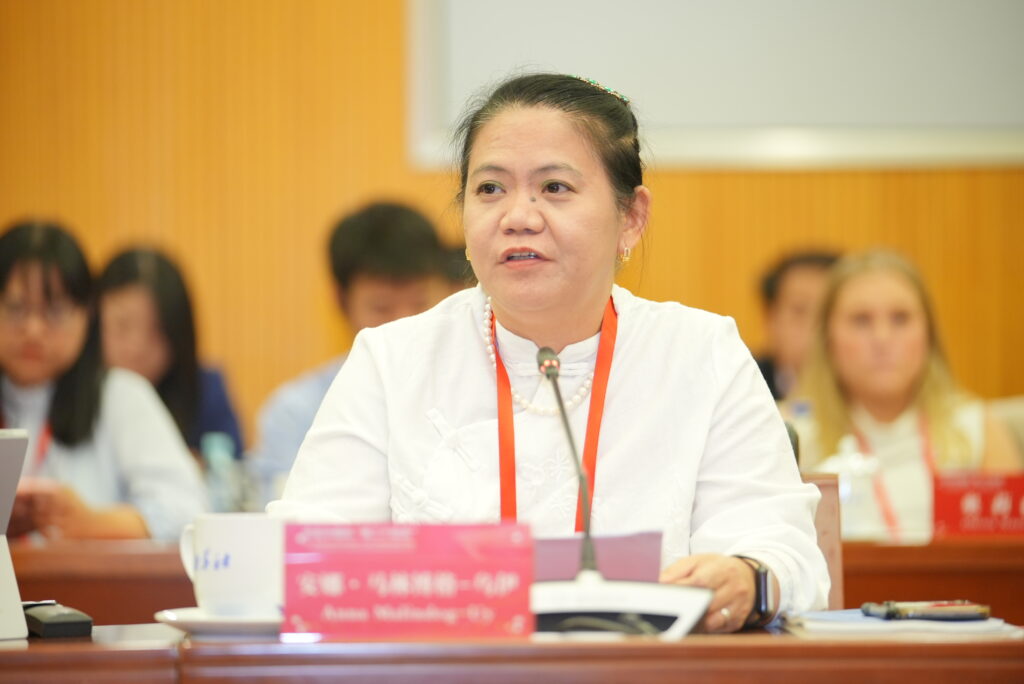
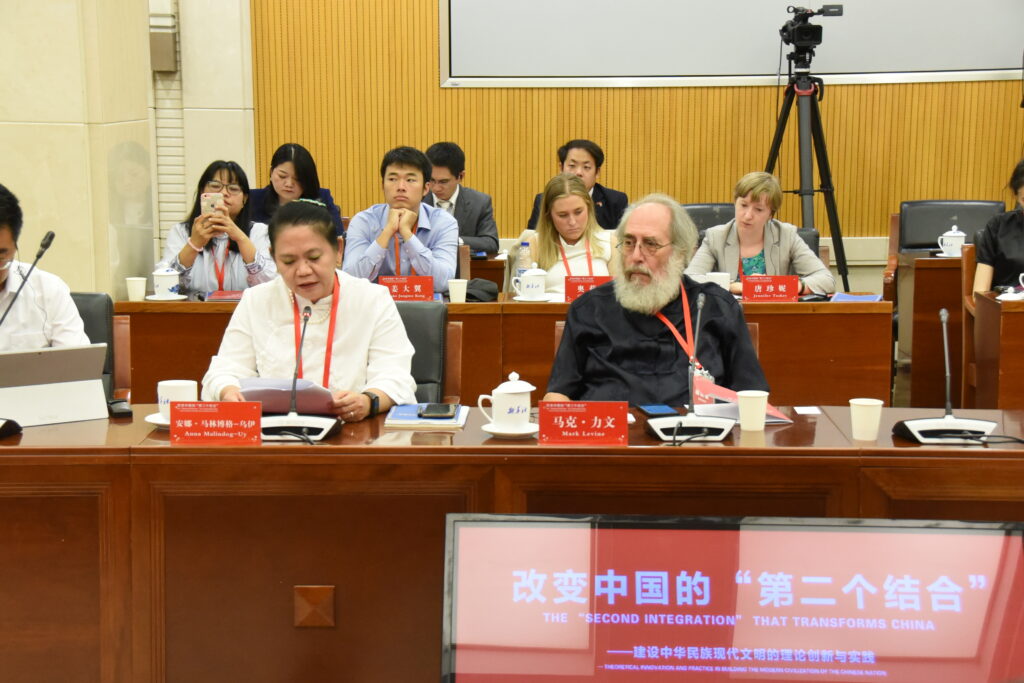
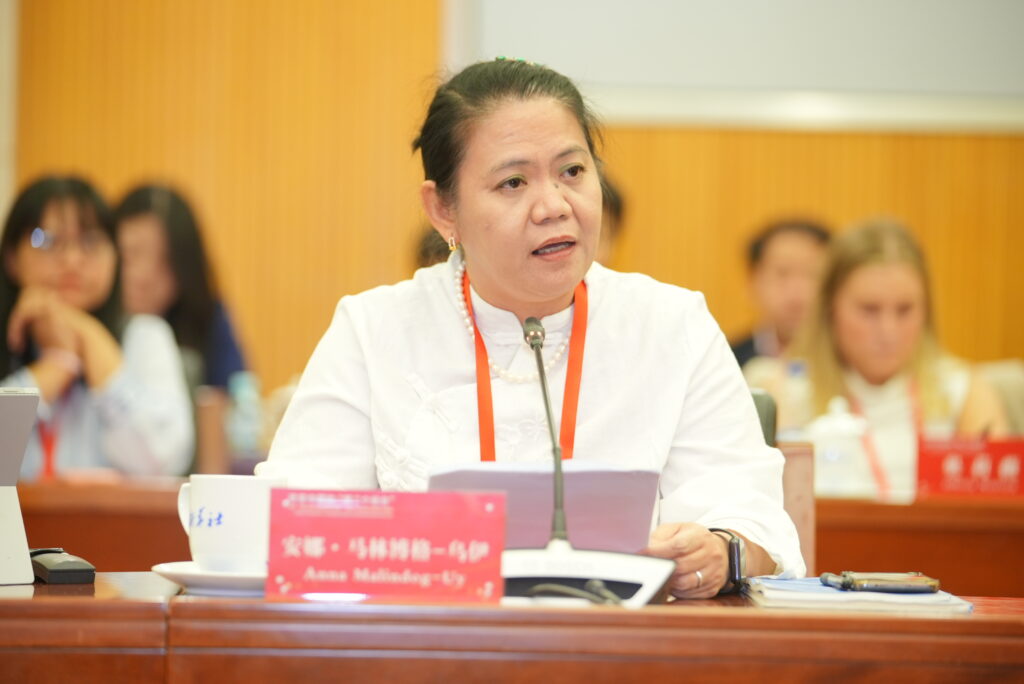
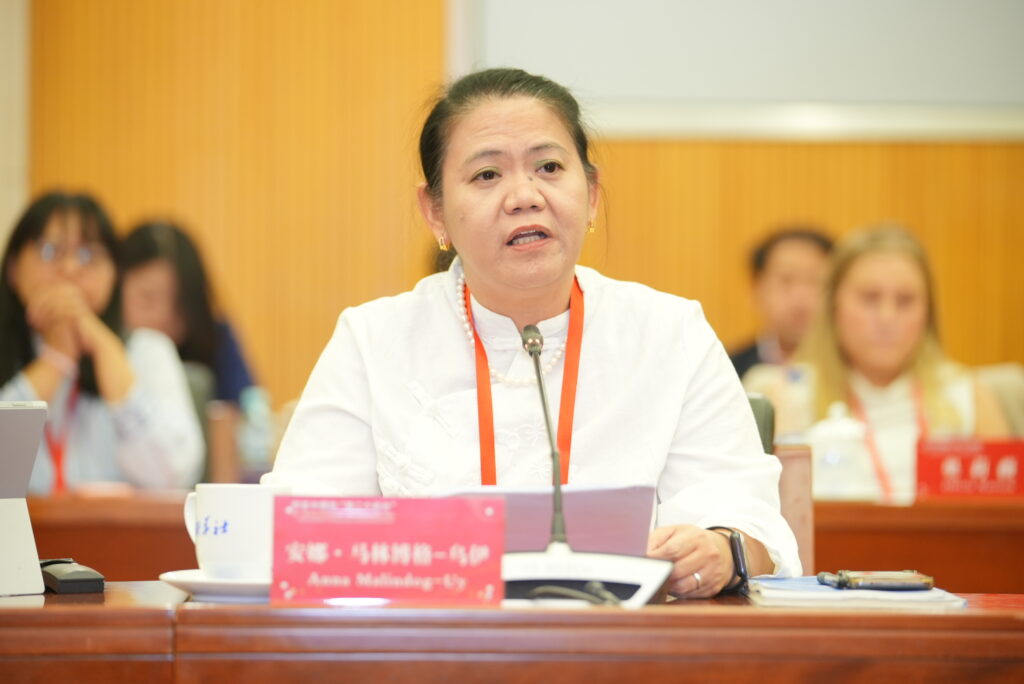
Friends and colleagues,
To the organizers of this seminar,
Ladies and gentlemen,
A pleasant afternoon to all!
It is indeed a pleasure and an honor for me to speak at this eminent seminar. I sincerely thank the organizers for inviting me and allowing me to share my perspective on “The “Second Integration” that Transforms China–Theoretical Innovation and Practice in Building the Modern Civilization of the Chinese Nation.”
But before anything else, I would like to extend my sincere congratulations and solidarity to the founding party of contemporary and modern China – the Communist Party of China (CPC) for its 102nd founding anniversary since its establishment.
I would also like to congratulate the New China Research (NCR), Xinhua News Agency, for releasing and launching the second integration report. Congratulations indeed!
Indeed, the CPC, with its more than 98 million members, is living through greater vitality after more than a century of political development, economic progress, and social advancement. It can’t be denied that / and it is a fact, / that indeed, the CPC is very much a part, / at the core, / and plays a vital role in China’s opening up, reform, modernization, and economic development and progress-bearing the mission of providing a comfortable way of living for the Chinese people.
On this note, / I salute the outstanding achievements of the CPC as exemplified by China’s rapid transformation into a modern, prosperous, and second-largest economy in the world, / with growing global economic and political influence today, which makes China not only one of the most influential countries in today’s international politics and economics but also an inspiration to the developing world. This remarkable achievement of China as a civilizational state became a realization under the guidance and strong leadership of the CPC, working hand in hand with the Chinese people.
Aside from the fact that China is advancing in all facets of life more particularly in infrastructure, / information and technology, / artificial intelligence, / big data, / e-commerce, / agriculture, / trade, and commerce, China’s triumph in its fight against extreme poverty, even amid the coronavirus pandemic, with a precise and targeted poverty alleviation program and strategy under the strong and decisive leadership of the CPC is a remarkable feat that is worth emulating by the developing world.
China has scored a complete victory in its fight against poverty, lifting around 832 poor counties, 128,000 poor villages, and nearly 100 million people living in absolute poverty. In just eight years, this number has been reduced to zero. This accounts for over 70 percent of global poverty reduction and has met its poverty eradication target set out by the 2030 United Nations (UN) Agenda for Sustainable Development, ten years ahead of schedule.
Thus far, China is the most extraordinary anti-poverty story in human history. This is unprecedented, and I believe it happened because of the CPC’s utmost dedication and commitment to pursuing a comfortable and better life for the Chinese people. This is indeed an outstanding achievement for the CPC, the People’s Republic of China (PRC), and the Chinese people.
In this regard, undoubtedly, thus far, China serves as a shining example and a guiding light of the developing world as it continues and pursues its socialist vision of creating a moderately prosperous nation for the Chinese people. Likewise, China inspires the developing world as a model of economic growth, development, peace, and stability. And the successes of China as a country are testaments to CPC’s devotion and a strong commitment to China’s rejuvenation as a modern, peaceful, and prosperous country.
Ladies and Gentlemen, on this note, I would like to extend my CONGRATULATIONS once again to the CPC for its 102nd Anniversary.
On another note, in this day and age, in a world that is traversing profound and tremendous changes and challenges, the CPC also plays an active role in global affairs in building a global community with a shared future and win-win cooperation, which for me is an embodiment and exemplification of China’s international solidarity and cooperation facilitating and promoting multilateralism, and global governance in development cooperation across the world most especially among countries in the developing world or the Global South.
Friends and colleagues, to share a more personal insight, the first time I heard the word or the notion of a “community with a shared future for mankind and win-win cooperation,” the first word that came to my mind was SOLIDARITY. From a non-Chinese national, the concept of “building a community, a global community at that, with a shared future, for me, means and expresses China’s solidarity with the rest of the world, particularly the developing world, in its commitment to the spirit of friendship, / humanitarianism, / multilateralism, / and internationalism.
The Chinese notion of “building a community with a shared future for mankind” is both an expression and act of Solidarity and Multilateralism with the rest of the world as China continuously and progressively contributes to human progress, scientific and digital transformation, and innovation, and economic development through China’s foreign assistance, and development cooperation, aid, investments in other countries and most especially through trade. China, thus far, is the biggest trading partner of most developing countries across Asia, Africa, Latin America, and even the Eastern part of Europe or Eurasia. For me, this is the underlying philosophy of President Xi Jinping’s and the CPC’s broad vision of building a community with a shared future for humanity and win-win cooperation.
Concerning Multilateralism, China’s pursuit of multilateralism is anchored on forging international cooperation and collaboration between and among countries in a “fair and just” manner within the ambit or context of the United Nations and international laws by protecting and safeguarding the interest or the greater good of most countries and peoples of the world, especially that of the Global South and not just the narrow interests of a few countries of the Global North.
Hence, multilateralism further means countries across the globe, big or small, wealthy or poor, should all have a stake, a voice, and a say and should be consulted on how global affairs that affect them should be managed and shaped. This, for me, is the true essence of multilateralism vis-à-vis unilateralism and hegemony.
In retrospect, as the current global order continues to face and experience enormous challenges for genuine multilateralism to be achieved vis-à-vis the unilateralism agenda of the very few countries of the Global North to promote their interests over the legitimate interests of many countries of the Global South, China’s international development cooperation with countries in the Global South, and its path to development and modernization rooted in China’s historical experience, independence, sovereignty, identity, culture, distinct values, and traditions continuous to serve as an inspiration and a guide for the developing world.
Once again, I would like to extend my warmest and most sincere thanks to the organizers of this momentous seminar for inviting me to share my perspective on “The “Second Integration” that Transforms China–Theoretical Innovation and Practice in Building the Modern Civilization of the Chinese Nation.”
Ladies and gentlemen, friends and colleagues, thank you for your attention. Again, a pleasant afternoon to all!
